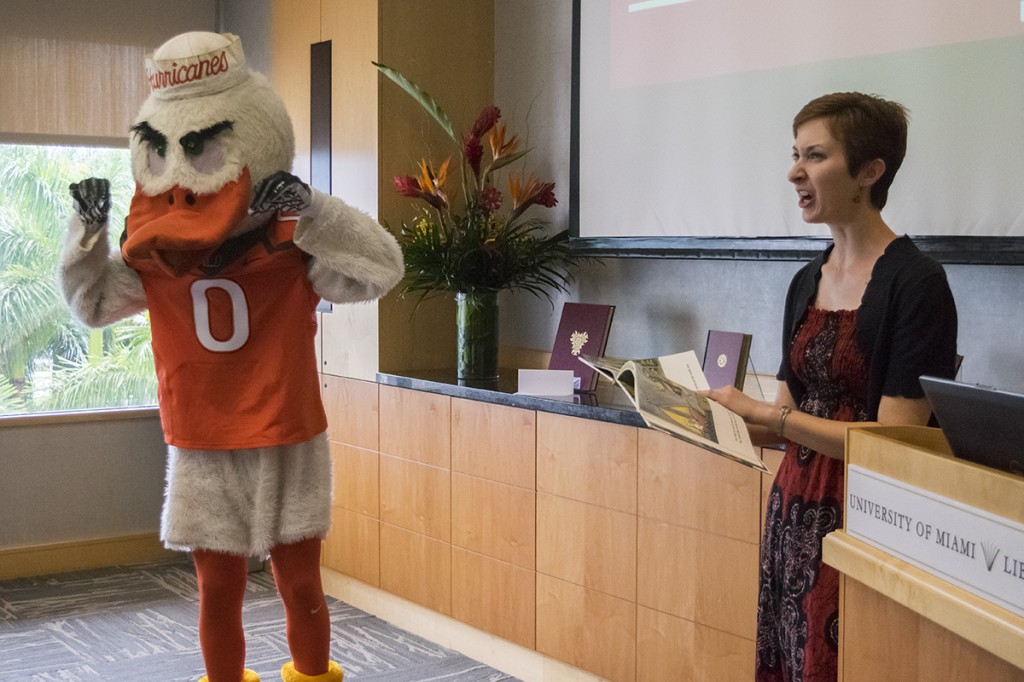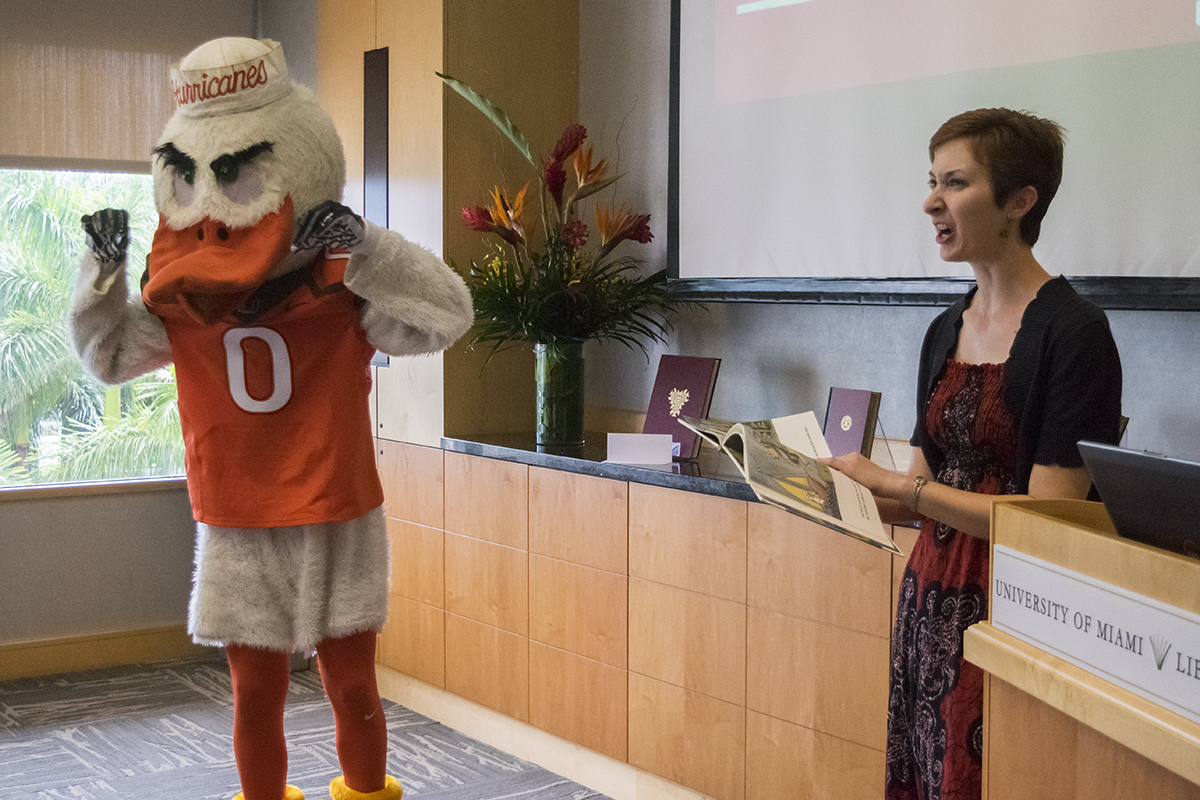
The American Library Association (ALA) reported 307 attempts to challenge or ban books in 2013. According to University of Miami librarian Laura Fralinger, this means that almost on a daily basis someone, somewhere in the United States tried to prevent people from reading a book because they did not agree with it for some reason.
“A lot of people don’t seem to realize this is a current and ongoing thing,” she said. “A lot of people ask, ‘oh this is in other countries, right?’ No, no, this is the U.S. ‘Oh this was a long time ago right?’ No, no, this is now, this is still something that’s happening.”
Fralinger, who works in the education and outreach department at Richter Library, planned the university’s first Banned Books Week event through its Banned Books Read Out Wednesday at Richter. Since 1982, the ALA has sponsored Banned Books Week, an annual, national event to celebrate the freedom to read and to promote awareness of censorship. This year, it was held Sept. 21-27.
As part of the event, Fralinger invited several readers to participate in the Read Out by reading a passage from a book that has been banned or challenged, but was important to the reader in some way.
“Books that the students care about have been challenged,” Fralinger said. “These are books that you’ve either grown up reading or have been important to you at various points of time in your life. They affect you, they’re important, they’re challenging to read, and they’re not always comfortable books.”
One of the readers was Student Government President Alessandria San Roman. She chose to read an excerpt from “The Diary of Anne Frank.”
“I felt like I just had a personal connection with her, and she just instilled hope in me because she always found good in people despite the really bad circumstances,” she said.
About 51 people attended the event, including freshman Yousra Boufta. Boufta, an international student, wanted to learn more about when and why books were banned in America.
“This event informs people, and it broadens the scope or the view of knowledge that people have, cultural knowledge, all of that comes into play and it’s interesting,” she said.
Senior Alicyn Zall is taking a creative writing class and was interested to see how far the U.S. has come because “literature is such a reflection of society.”
“Sometimes I think I’ll write something that’s kind of racy and, I don’t know, it’s just weird that they used to have power to actually say ‘you can’t say that,’” she said.
Throughout the years, books have been both challenged and banned – a difference that Special Collections librarian Jay Sylvestre defines by the library or government’s reaction to a work.
Special Collections, a floor that contains archival collections of the history of Miami, also created a special exhibit for Banned Books Week that will be on display through Oct. 3.
A book that is banned is prevented from being sold or results in the physical removal of a work from a library or bookstore. There were even instances of books, like in 1918 “Ulysses” by James Joyce, that were intercepted in the mail and then burned by the Post Office, according to Sylvestre.
A challenged book instead involves a group of concerned parents or citizens who do not believe the book is appropriate for a certain age level, Sylvestre said. Then, the librarians may agree and move the book to a more restricted or adult section. Or they may say they understand the citizens’ concerns, but will choose to leave it on the shelf.
“The library is full of all kinds of information, whether or not people think it’s good information or right information, it’s here and it’s a resource and it’s kind of up to every individual student to decide what they’re going to do with it,” he said. “There’s always something in a book that might be questionable or challengeable, but that’s not a reason to remove them from the public view.”
Fralinger hoped that through this event, students would gain awareness that book banning is still happening and its negative consequences.
“There are still people out there who would like to restrict students’ freedom to read and by extension of that, their freedom of speech,” she said. “Freedom of thought is very important. They’re here to learn how to think, to improve their lives through knowledge and by restricting books, you’re restricting their ability to do that.”






